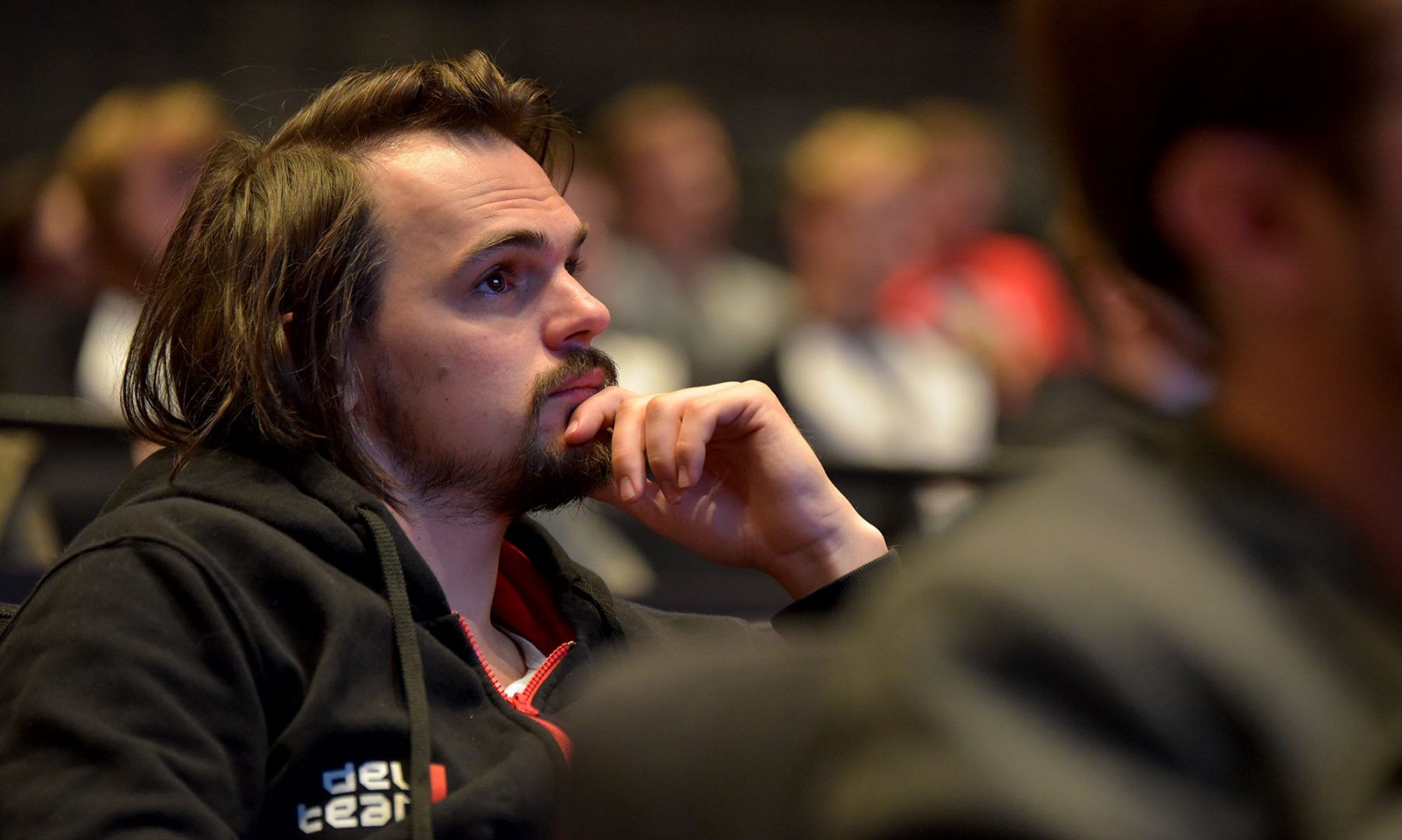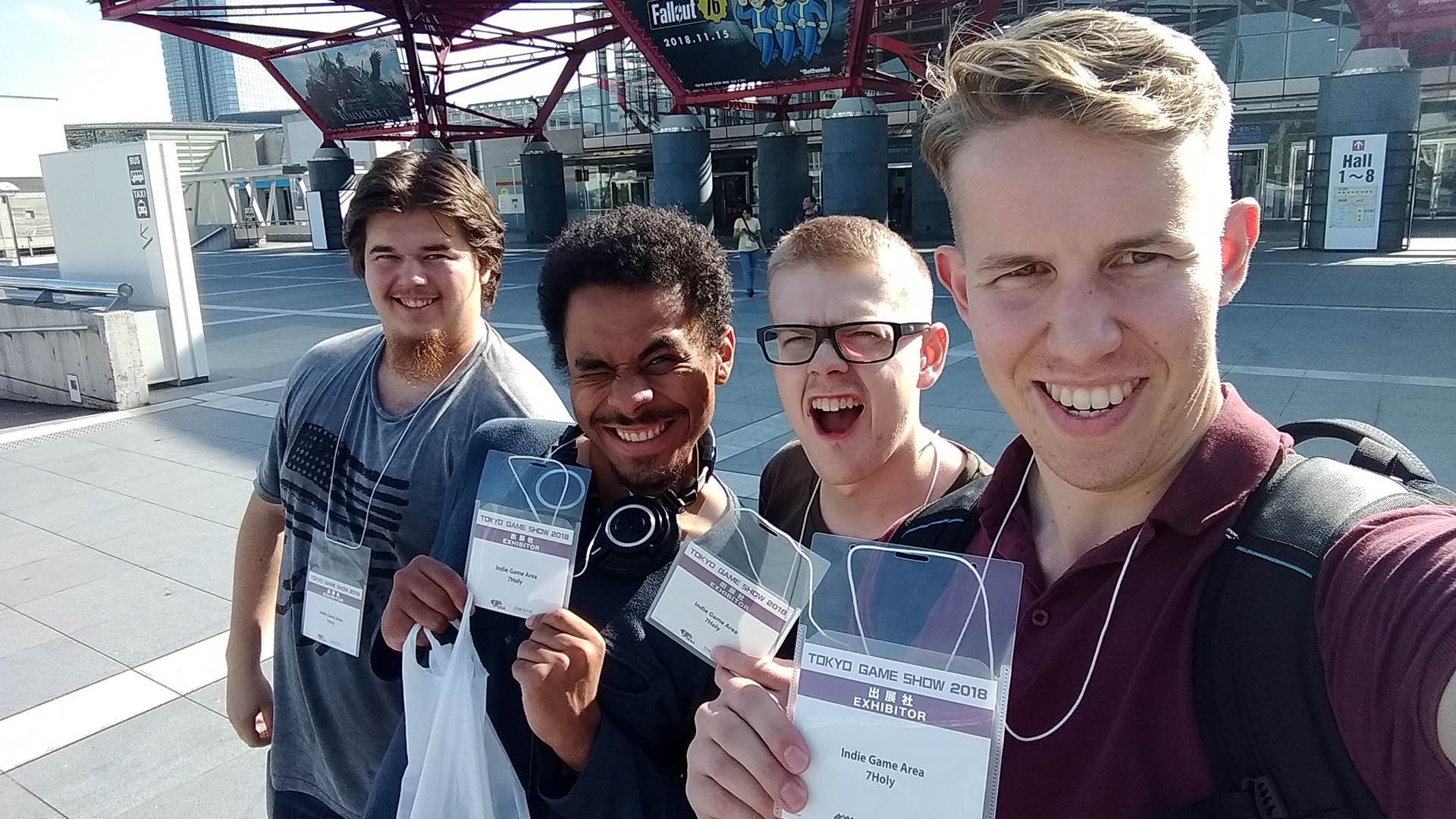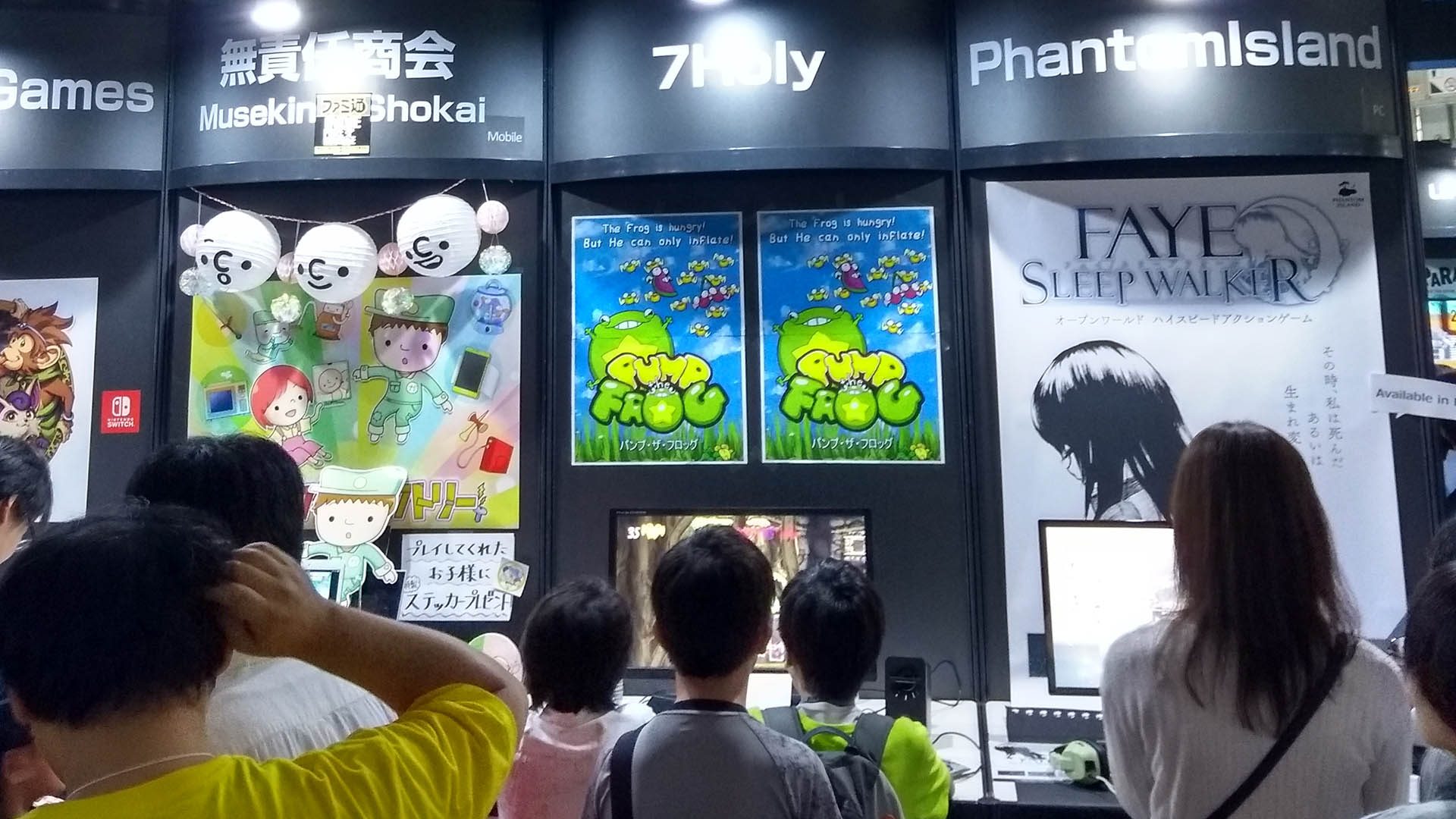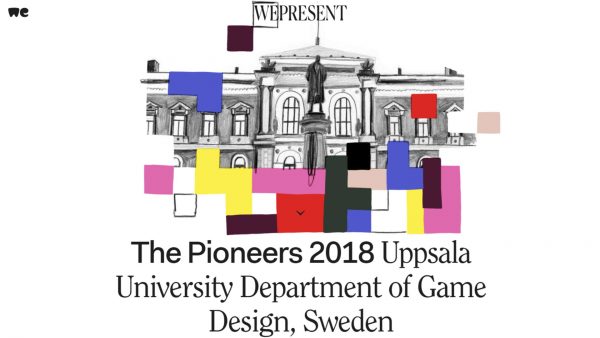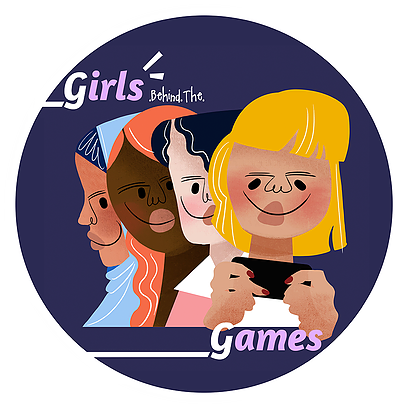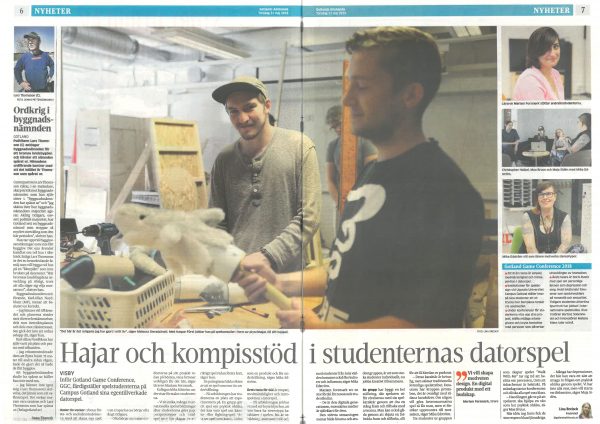The Tokyo Game Show is one of the worlds largest game exhibitions – seeing nearly 300 000 visitors each year. Pump The Frog – a 2017 student project from Gotland – was there last week and was ranked among the Top 6 Indie Games of Tokyo Game Show 2018!
The team spent their summer participating in (and winning!) a “Sense of Wonder” – a competition hosted by TGS for game developers to win a free both in the indie area.
Now that the team is back on Gotland, here are some of their take-aways:
- The people we met mostly don’t speak english, though sometimes they can understand it. If given the choice, they prefered our broken Japanese over their limited English. We recommend you learn some basic Japanese and make sure all your materials are available in both English and Japanese!
- Japanese people seem shy, and even more so because you are a gaijin. You have to invite them to the booth, they won’t approach on their own. To get them to play; wait until they show the slightest bit of interest, then invite them.
- The venues in Japan all had aggressive air conditioning. It’s cold and your throat dries out quickly. Luckily there are vending machines everywhere with water, tea and soft drinks.
